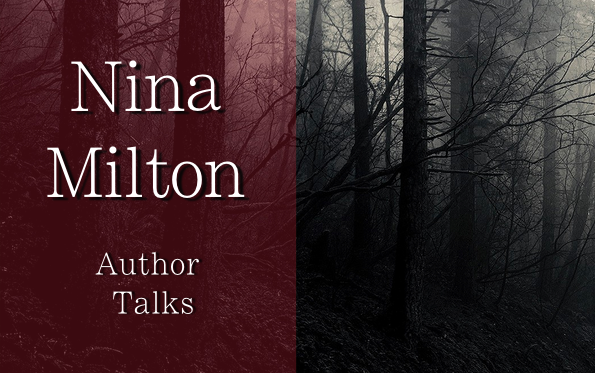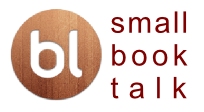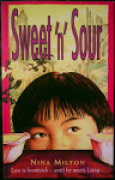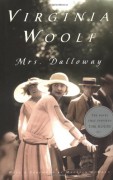BookLikes
World's #1 Blog Platform designed for book bloggers, reviewers, writers - all Book Lovers. Your Reading Life. Redesigned.
Author Talks: Nina Milton

Please welcome Nina Milton to Author Talks!
Nina Milton is a British writer of children's books, short fiction and now crime stories. She's won many literary competitions, including the Crossroads Competition, Kent Festival Prize, and the Wells Literary Short Story Competition.
You can visit her blog and follow her at BookLikes: Sabbie Dare and Friends, and win her title on BookLikes.
![]() Have you always wanted to become a writer? How long have you been writing?
Have you always wanted to become a writer? How long have you been writing?
![]() When I was five, my infant school teacher Mrs Marsden read a story to the class. It might have been the fable 'The Mouse and the Lion', but I can't really remember. Then she asked the class to write a story. I was dumfounded. For the first time I realized that the books I loved had actually been written by real human beings. Before that, I believe they must have fallen from some sort of story heaven. It was a revelation - from then on I was scribbling down stories all the time.
When I was five, my infant school teacher Mrs Marsden read a story to the class. It might have been the fable 'The Mouse and the Lion', but I can't really remember. Then she asked the class to write a story. I was dumfounded. For the first time I realized that the books I loved had actually been written by real human beings. Before that, I believe they must have fallen from some sort of story heaven. It was a revelation - from then on I was scribbling down stories all the time.
I started to write a novel at the age of fifteen. It was chock full of angst and I never finished it. I then took to writing short stories, which I began publishing a few years later in women’s magazines. Once my children were at school I made a big push to start some children’s stories.
![]() Your first published works were books for children, you also enjoy writing short stories, and now you focus on crime novels. What’s your favorite genre to write?
Your first published works were books for children, you also enjoy writing short stories, and now you focus on crime novels. What’s your favorite genre to write?
![]() I do love writing crime. I love the mystery aspect, trying to puzzle the reader while keeping them on the edge of their seat. I stay awake at night, trying to sort out all the permutations of each novel. I’m not sure I value that as much as the actual writing, though...the creating of strong characters, for instance, or the creation of a lyrical ‘voice’ for the narrative, but perhaps I should.
I do love writing crime. I love the mystery aspect, trying to puzzle the reader while keeping them on the edge of their seat. I stay awake at night, trying to sort out all the permutations of each novel. I’m not sure I value that as much as the actual writing, though...the creating of strong characters, for instance, or the creation of a lyrical ‘voice’ for the narrative, but perhaps I should.
A revelation has been writing a series; the characters become so entirely real, and their lives, past and present, open out. I’ve had such fun writing my shaman ‘sleuth’, Sabbie Dare. She’s like a younger sister to me now.
![]() The second installment of your mystery series is out, Unraveled Visions has been released in UK on October 5. Congratulations! Can you tell our readers more about the title and A Shaman Mystery series?
The second installment of your mystery series is out, Unraveled Visions has been released in UK on October 5. Congratulations! Can you tell our readers more about the title and A Shaman Mystery series?
![]() In the Moors was the first of the Shaman Mysteries published by Midnight Ink last year and available online and from bookshops and libraries as a paperback or hardback large print book. It’s
In the Moors was the first of the Shaman Mysteries published by Midnight Ink last year and available online and from bookshops and libraries as a paperback or hardback large print book. It’s  also an ebook and available on Kindle. Unraveled Visions continues to follow Sabbie’s adventures as she runs a therapeutic shamanic business in Bridgwater. She’s still seeing Rey Buckley, the maverick cop she sparked with in book one. And she’s still as cock-eyed and gutsy as she was in the first book, even though, yet again, her investigations hurtles her towards a dark and menacing place.
also an ebook and available on Kindle. Unraveled Visions continues to follow Sabbie’s adventures as she runs a therapeutic shamanic business in Bridgwater. She’s still seeing Rey Buckley, the maverick cop she sparked with in book one. And she’s still as cock-eyed and gutsy as she was in the first book, even though, yet again, her investigations hurtles her towards a dark and menacing place.
The idea for my Shaman Mysteries, and In the Moors in particular, came to me when Sabbbie Dare. She walked right into my head and spoke directly to me - sort of - ‘hi, Nina, I’m Sabbie, I’m 28 and I’m a shaman, which means I walk in the spirit world to help my shamanic clients. I love my job, but sometimes very strange people come into my therapy room...’
Sabbie gains the strength to get through life with her pagan beliefs, but still struggles over the memories of her difficult childhood which left her as a very angry young teenager. But she has an open heart, and is adept at inviting trouble into her life. In Unraveled Visions, a gypsy is looking for her missing sister and a neighbour is terrified of her husband and as aways she has a hard time keeping away from danger. As she says in In the Moors I’m the sort of person who has to poke their finger into all the holes marked, ‘do not insert’.”

![]() Before A Shaman Mystery you wrote books for children. Was it difficult to switch to another genre and audience? A Shaman Mystery is quite dark.
Before A Shaman Mystery you wrote books for children. Was it difficult to switch to another genre and audience? A Shaman Mystery is quite dark.
![]() I loved writing for children, and, once I’ve found the voice to my main character, I don’t really notice much difference between writing for adults and children - apart from the amount of swearing! I’m certainly hoping to write more for children and young people in the future. In my books for eight to thirteen year olds, I still have a central mystery to the story.
I loved writing for children, and, once I’ve found the voice to my main character, I don’t really notice much difference between writing for adults and children - apart from the amount of swearing! I’m certainly hoping to write more for children and young people in the future. In my books for eight to thirteen year olds, I still have a central mystery to the story.
The Shaman Mystery series will continue to have a dark, atmospheric edge. Sabbie has a mysterious past herself, which she’s only just beginning to unravel.
![]() How do you invent the story? Does it happen spontaneously or is it a long lasting process?
How do you invent the story? Does it happen spontaneously or is it a long lasting process?
![]() Like most writers, I’m fascinated by the way ideas, characters and entire scenes drop into a writing place in our heads, which becomes increasingly real to us. Characters seem to appear from nowhere, or from a muse, as the ancients would have it. They have conversations in houses that don’t exist, or stand gazing out from headlands, the salt spray on their lips, while the writer is actually under the shower.
Like most writers, I’m fascinated by the way ideas, characters and entire scenes drop into a writing place in our heads, which becomes increasingly real to us. Characters seem to appear from nowhere, or from a muse, as the ancients would have it. They have conversations in houses that don’t exist, or stand gazing out from headlands, the salt spray on their lips, while the writer is actually under the shower.
I call it ‘walking in your imagination’, because you can travel to any place or time or the mind of any character you chose. In this slower state of thinking, you naturally enter the relaxed, twilight world where vivid imagery flashes into the mind’s eye and we become receptive to information. To create this sort of trance state, hypnotists use a swaying crystal, therapists use a soothing voice, and shaman use the beat of a drum - Sabbie Dare uses a drum to enter her otherworld.
Writers, on the other hand, mostly use their legs. As far apart chronologically as Dickens and Drabble, writers are known to swear by the afternoon walk, disappearing after lunch to walk in the woods, allowing the beat of their stride and the beauty of the surroundings to let their minds drop into the world of story.
In my experience it doesn’t much matter where you walk (although scenery can be inspirational in the most surprising ways), but it’s important to walk alone. I have beautiful Ceredigion countryside to walk through, and I use that a lot when I’m creating new stories. Once the characters are talking to me, I start serious plotting; making charts and lists and timelines and investigating possibilities. I also spent time plotting carefully. I don’t dry up half as often as I used to nowadays.
![]() Do you consult the crimes you want to put in your books with the police, detectives, doctors?
Do you consult the crimes you want to put in your books with the police, detectives, doctors?
![]() I have two very friendly and helpful relations who are in the police force and keep me up to date with things. And I know a lot of shamans, as I’m a druid myself. I’m also in touch with people in the medical profession and have a good grounding to start with as I was a nurse before I became a full-time writer.
I have two very friendly and helpful relations who are in the police force and keep me up to date with things. And I know a lot of shamans, as I’m a druid myself. I’m also in touch with people in the medical profession and have a good grounding to start with as I was a nurse before I became a full-time writer.
![]() Which authors influence your writing and your works?
Which authors influence your writing and your works?
![]() I actually like reading contemporary fiction which contains mystery at the core, like Kate Atkinson, Patrick Gale, Ian McKewan, Sarah Waters, David Mitchell and Kazuo Ishigor.
I actually like reading contemporary fiction which contains mystery at the core, like Kate Atkinson, Patrick Gale, Ian McKewan, Sarah Waters, David Mitchell and Kazuo Ishigor.
But I also love crime, of course, especially Raymond Chandler, PG James Francis Fyfield and Elly Griffiths, to whom my work has been compared (Library Journal).
![]() Do you prefer writing novels or short stories? How is the process different?
Do you prefer writing novels or short stories? How is the process different?
![]() I’ve just been writing a degree-level course about writing short fiction for the Open College of the Arts. But yes, writing short stories is very different indeed. You need a tighter timeline (hours, preferably) less characters (two, preferably) and a single core theme - the cleverer the better.
I’ve just been writing a degree-level course about writing short fiction for the Open College of the Arts. But yes, writing short stories is very different indeed. You need a tighter timeline (hours, preferably) less characters (two, preferably) and a single core theme - the cleverer the better.
I have to say I’m more comfortable writing 100,000 words than 1000, but inbetween my crime fiction I can’t help be drawn back to the genre. My favourite short story writer at the moment is Geoffrey Ford and my most recent short stories can be found in the anthology Unchained (Tangent Press) available from Amazon uk.
![]() What are the best and the worst things about being a writer?
What are the best and the worst things about being a writer?
![]() The best thing is the sheer creativity and the way you can lose yourself in the writing when it’s going well. The worse thing is sitting on your butt for so long! (Especially when the sun’s shining.) It’s good to get out, meet other writers, go to events.
The best thing is the sheer creativity and the way you can lose yourself in the writing when it’s going well. The worse thing is sitting on your butt for so long! (Especially when the sun’s shining.) It’s good to get out, meet other writers, go to events.
![]() You’re participating in “Books Are My Bag” which supports local bookstores and writers. Is it easy to be a writer nowadays? How can readers support local authors?
You’re participating in “Books Are My Bag” which supports local bookstores and writers. Is it easy to be a writer nowadays? How can readers support local authors?
![]() Yes, if you’re in the UK on the 11th October, I’ll be launching Unraveled Visions the 2nd Shaman Mystery Novel from Midnight Ink in a Bristol bookshop - Foyles in Quaker’s Friars - as part of the Books are my Bog weekend. I'll be there from 2pm to 7pm at this drop-in event, signing my new book, and reading from it. I'll also be holding a short workshop for writers. So if you’re around do come to meet me, check out my writing, and also meet a lot of other Bristol writers.
Yes, if you’re in the UK on the 11th October, I’ll be launching Unraveled Visions the 2nd Shaman Mystery Novel from Midnight Ink in a Bristol bookshop - Foyles in Quaker’s Friars - as part of the Books are my Bog weekend. I'll be there from 2pm to 7pm at this drop-in event, signing my new book, and reading from it. I'll also be holding a short workshop for writers. So if you’re around do come to meet me, check out my writing, and also meet a lot of other Bristol writers.

![]() What’s your favorite thing to do when you’re not writing?
What’s your favorite thing to do when you’re not writing?
![]() Gardening. I love growing veg and I would love growing flowers, if I could get the hang of it! I also love transforming the things we grow into food, and I’ve just been part of a project for writers who bake. The book is out now on Amazon; it’s called Bake, Love, Write.
Gardening. I love growing veg and I would love growing flowers, if I could get the hang of it! I also love transforming the things we grow into food, and I’ve just been part of a project for writers who bake. The book is out now on Amazon; it’s called Bake, Love, Write.
![]() If not writing than what? Who would you like to be if you couldn’t be a writer?
If not writing than what? Who would you like to be if you couldn’t be a writer?
![]() I would have loved to be a dancer. Maybe a ballroom dancer. The idea of swirling gracefully around a floor to a rush of beautiful music is tantalising. Sadly, I don’t swirl gracefully. I trip over my feet and crash onto the parquet.
I would have loved to be a dancer. Maybe a ballroom dancer. The idea of swirling gracefully around a floor to a rush of beautiful music is tantalising. Sadly, I don’t swirl gracefully. I trip over my feet and crash onto the parquet.

What are you reading now?
I’ve just finished The Goldfinch, by Donna Tartt, which deserves every bit of praise - characters who are real and unforgettable and deep, clever Theme with a brilliant twist towards the end. I’m now reading Americanah by Chimamanda Ngozi Adichie which carefully explores themes of race and belonging. Not such an exciting read, but a very meaningful one.
Paper books or e-books? Why?
I do own a Kindle and I do use it, but you can’t beat holding a book in your hand.
What are your favorite books?
Please recommend some must read titles for our readers.
I couldn't put The Hours, by Michael Cunninham, down, It's the perfect accompaniment to Mrs Dalloway by Virginia Woolf. It is also a great achievement in itself. Written somewhat in the Woolf style, it moves deftly, never making a shortcut, through a single day in the lives of three women.
In 1923 Virginia Woolf, living in countryside Richmond, but longing to go back to London, is setting out to write the first words of her new book, about a woman holding a party. In 1951, in Los Angeles we meet a woman with a small son and one on the way. Laura Brown is reading Virginia Woolf, struggling with her husband’s birthday cake and contemplating suicide. In 1990 in New York, Clarissa Vaughan a middle-aged woman with a grown daughter and a female partner, is planning a party for her friends, to celebrate her early love’s recent literary award. But Richard has AIDS and doesn’t want a party in his honour. I saw the film before reading the book, but the book itself is the revelation. Stunning.
What advice would you give to aspiring writers?
Get yourself a writing buddy; someone who can read your work and comment honestly, and someone who has fallen into all the writing pitfalls you’re likely to encounter. It should be someone who can buy you a consolitary drink when there’s bad news and join you in champaign cocktails when there’s good news!
What are your favorite quotes?
Show, don’t tell - Chekhov said…
Don’t tell me the moon is shining;
show me the glint of light on broken glass…
Characterization - Ernest Hemingway said…
A writer should create living people; people not characters.
A character is a caricature.
Description - Proust said…
The real voyage of discovery consists not in seeking new landscapes,
but in having new eyes…
Follow those three pieces of advice and you’ll hit the ground running.
What’s your favorite writing and reading spot?
(our readers would love to see some photos).
My garden (the bench where I sit is just out of the picture), my office, and the countryside I walk in.


Thank you, Nina!
And here's a surprise from Nina Milton:
enter the giveaway to win Unraveled Visions!
You can find Nina Milton's books on BookLikes:
and more on Nina Milton's author page.
Read other talks on BookLikes
Author Talks on BookLikes:
Guest Post by Warren Adler: The Title Dilemma
Author Talks: Libby Fischer Hellmann
Author Talks: Lauren B. Davis, Part One
Author Talks: Lauren B. Davis, Part Two
Author Talks: Ned Hayes, Part One
Author Talks: Ned Hayes, Part Two
Author Talks: Elizabeth Watasin, Part One
Author Talks: Elizabeth Watasin, Part Two
Literary Inspirations of Rayne Hall
Blog Talks on BookLikes:
Book Blog Talks: The Happy Booker, Part One
Book Blog Talks: The Happy Booker, Part Two
Book Blog Talks: Happy Books, Part One
Book Blog Talks: Happy Books, Part Two
Photos courtesy of Nina Milton.








 1
1
 8
8
